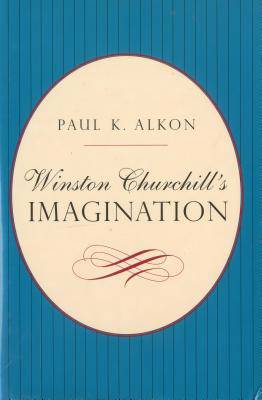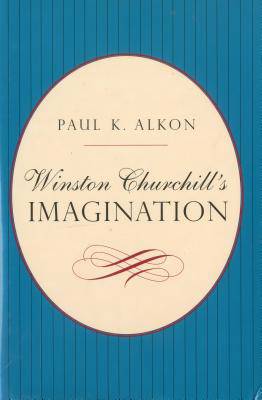
Door een staking bij bpost kan je online bestelling op dit moment iets langer onderweg zijn dan voorzien. Dringend iets nodig? Onze winkels ontvangen jou met open armen!
- Afhalen na 1 uur in een winkel met voorraad
- Gratis thuislevering in België vanaf € 30
- Ruim aanbod met 7 miljoen producten
Door een staking bij bpost kan je online bestelling op dit moment iets langer onderweg zijn dan voorzien. Dringend iets nodig? Onze winkels ontvangen jou met open armen!
- Afhalen na 1 uur in een winkel met voorraad
- Gratis thuislevering in België vanaf € 30
- Ruim aanbod met 7 miljoen producten
Zoeken
Omschrijving
Although Churchill is a 1953 Nobel laureate in literature whose collected works run to thirty-eight volumes that remain of enduring interest, his famous speeches have overshadowed his other writing. Winston Churchill's Imagination concentrates on less familiar works in modes other than political rhetoric. Its method is close analysis of how Churchill engages readers with those words and ideas that are hallmarks of his imagination. Chapters take up his literary relationship with Lawrence of Arabia; Churchill's intense but little-known involvement with cinema in an essay on Charlie Chaplin and as a scriptwriter and consultant in the 1930s for Alexander Korda's film studio; Churchill's evocation of paintings as templates for narrative in his first history and in his only novel; his imaginative engagement with science and science fiction; the depiction of time, duration, and alternative history in his biography of Marlborough; and Churchill's last testament in the realm of imagination, 'The Dream.' This is a story that he reserved for posthumous publication, in which a 72-year-old Winston discusses the twentieth century with the Victorian ghost of his father, Lord Randolph Churchill, who died in 1895. Winston Churchill's Imagination is well researched, clearly argued, and eloquently written; it will be of great interest to scholars of literature and history, as well as to general readers interested in Winston Churchill.
Specificaties
Betrokkenen
- Auteur(s):
- Uitgeverij:
Inhoud
- Aantal bladzijden:
- 267
- Taal:
- Engels
Eigenschappen
- Productcode (EAN):
- 9781611482423
- Verschijningsdatum:
- 1/07/2006
- Uitvoering:
- Hardcover
- Formaat:
- Genaaid
- Afmetingen:
- 167 mm x 245 mm
- Gewicht:
- 594 g

Alleen bij Standaard Boekhandel
+ 173 punten op je klantenkaart van Standaard Boekhandel
Beoordelingen
We publiceren alleen reviews die voldoen aan de voorwaarden voor reviews. Bekijk onze voorwaarden voor reviews.











